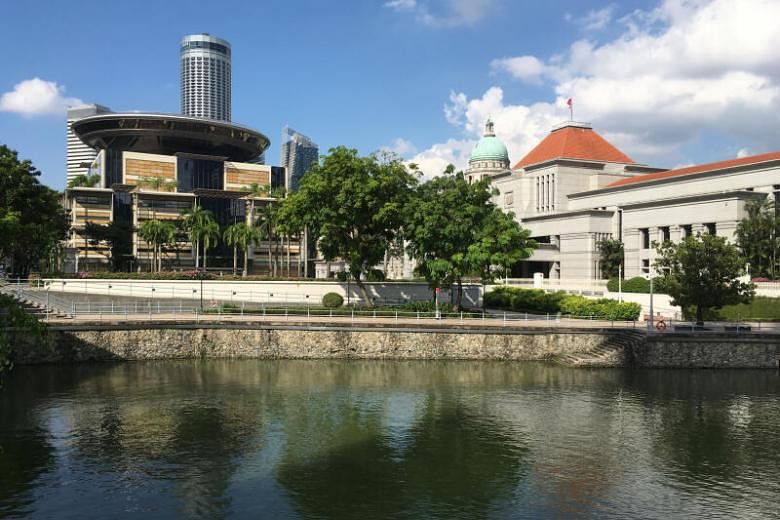SINGAPORE - Singapore's approach to governing should empower its elected government to take effective and swift action in the public interest, rather than to impair its ability to act, Second Minister for Law Edwin Tong said on Thursday (March 4).
He noted that in some other systems, a focus on circumscribing the Executive branch of government had led to gridlock.
"Singapore courts have been careful to strike an appropriate balance between preserving the Government's ability to act decisively in the public interest while imposing adequate safeguards to check against unlawful action," he said.
"It is a delicate but very important balance that not many other jurisdictions have managed to strike successfully."
The minister was responding to Mr Murali Pillai's (Bukit Batok) suggestion that certain laws exempt from review by the courts should be re-examined, given society's desire for greater checks and balances.
Mr Tong noted the issues Mr Murali raised are important and require fuller discussion, and the Government will set out its position more substantively later.
Its priorities are clear: strong and effective governance to get things done, uplift people's lives, uphold security and ensure safety.
And for the system to work, there has to be mutual trust, respect and a constructive balance among the three branches of government, said Mr Tong.
The Executive branch - led by the Prime Minister and comprising Cabinet ministers and office-holders - is best placed to make decisions, and act decisively, he said.
It is accountable to Parliament, which has a consultative and deliberative process, and is in turn directly accountable to voters.
This is a constructive but delicate balance, and the courts play an important role in maintaining this balance, the minister noted.
Mr Tong outlined two fundamental principles that inform Singapore's approach to administrative law, which he said flowed from the separation of powers between the Courts and the Executive.
First, the Executive must act within the law, and it is the role of the courts to say what the law is. The courts can, in general, review executive action on three grounds: illegality, irrational and procedural impropriety, noted Mr Tong.
Second, the courts recognise that the exercise of executive authority is ultimately the responsibility of the Executive, which has an elected mandate.
It also has the institutional competence and resources to make judgment calls between competing considerations that often arise in policy decisions, he added.
"For this reason, the courts have repeatedly emphasised that they do not substitute their judgment for that of the Executive, and are concerned with the decision-making process, and not its merits."
Mr Tong noted that other countries whose courts have got involved with politics and policymaking might have struck a different balance, but their results have not always been happy.
In Australia, judicial review has been used by non-citizens to prolong their stay at the cost of public resources.
In India, Supreme Court judges lament that their judiciary has strayed into the executive domain by influencing policy areas like nursery admissions, the number of free beds in hospitals and the size of speed breakers on roads.
"I think Members will agree with me that for Singapore, it is best if these matters are left for the Executive to determine," Mr Tong said.
He assured Mr Murali that in order to ensure legislation remains relevant to policy intentions, the Ministry of Law regularly relooks laws that are excluded from judicial review.
Adjustments are made where needed, and such exemptions, or ouster clauses, have been repealed when they were deemed to no longer be necessary, as was the case for the Employment Act, he noted.
"We will continue to review the need for such clauses and where necessary, carefully calibrate these clauses to the intended policy objectives behind such an ouster," said Mr Tong.


